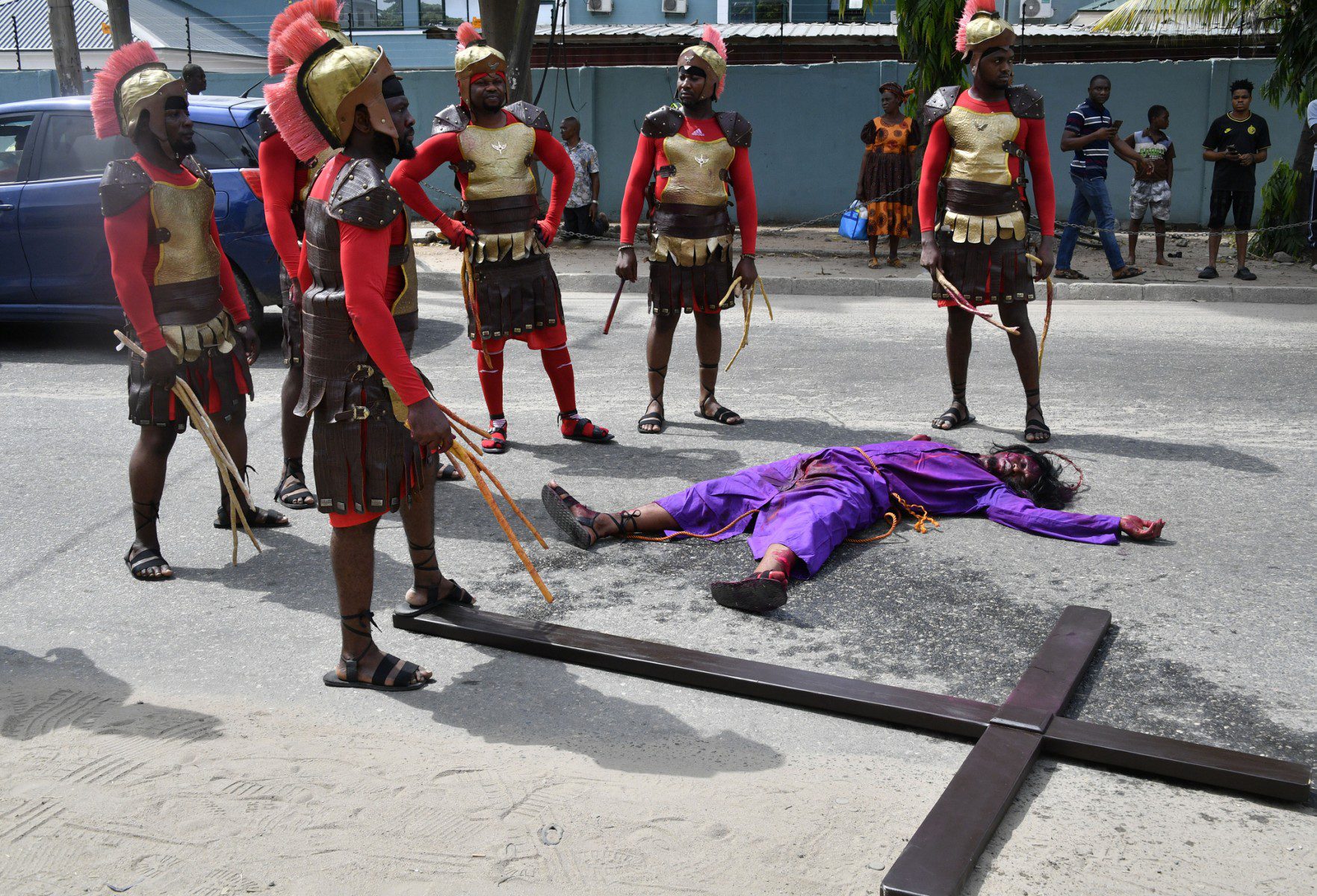Headlines
Nigerians Observe Good Friday Amidst Challenging Economic Conditions

As Nigerians mark Good Friday, a solemn occasion in the Christian calendar, they do so against the backdrop of profound economic challenges that have gripped the nation. This day, commemorating the crucifixion of Jesus Christ, holds deep religious significance for millions across Nigeria, yet the observance is tempered by the harsh realities of economic hardship that many face.
The Nigerian economy has been grappling with a myriad of issues, including inflation, unemployment, currency devaluation, and poverty. These challenges have been exacerbated by external factors such as the global COVID-19 pandemic, fluctuations in oil prices, and internal issues like insecurity and inadequate infrastructure.
Inflationary pressures have been particularly burdensome for ordinary Nigerians, with the cost of goods and services steadily rising. The inflation rate has soared to double digits, eroding the purchasing power of citizens and making it increasingly difficult for families to afford basic necessities.
Unemployment remains a pressing concern, especially among the youth demographic. The lack of job opportunities has fueled social unrest and contributed to a sense of disillusionment among many young Nigerians, who struggle to secure stable employment and financial security.
Currency devaluation has further compounded economic woes, leading to increased import costs and making imported goods more expensive for consumers. This has had a ripple effect on various sectors of the economy, from manufacturing to retail, exacerbating the challenges faced by businesses and consumers alike.
Poverty continues to cast a long shadow over the nation, with millions of Nigerians living below the poverty line. The inability to access adequate healthcare, education, and other essential services perpetuates a cycle of poverty that is difficult to break, trapping many in a state of economic vulnerability.
Despite these formidable challenges, Nigerians are resilient and resourceful, finding ways to navigate the economic turmoil and sustain their livelihoods. Good Friday serves as a moment of reflection and spiritual renewal for many, offering solace and hope in the face of adversity.
As Nigerians gather for Good Friday services and observances, they do so with a sense of faith and determination, drawing strength from their religious convictions and community bonds. Prayer and fellowship provide comfort and support amidst the trials and tribulations of daily life.
In the midst of economic hardship, there are signs of resilience and perseverance. Nigerians continue to demonstrate resilience in the face of adversity, finding innovative ways to overcome challenges and build a brighter future for themselves and their families.
Government efforts to address the economic crisis are underway, with initiatives aimed at stimulating growth, creating jobs, and alleviating poverty. However, progress has been slow, and many Nigerians remain skeptical of the government’s ability to deliver meaningful change.
As Good Friday unfolds across Nigeria, it serves as a poignant reminder of the enduring power of faith and resilience in the face of adversity. Despite the economic challenges that confront them, Nigerians draw strength from their faith and community as they seek to navigate uncertain times and build a better future for themselves and their nation.
